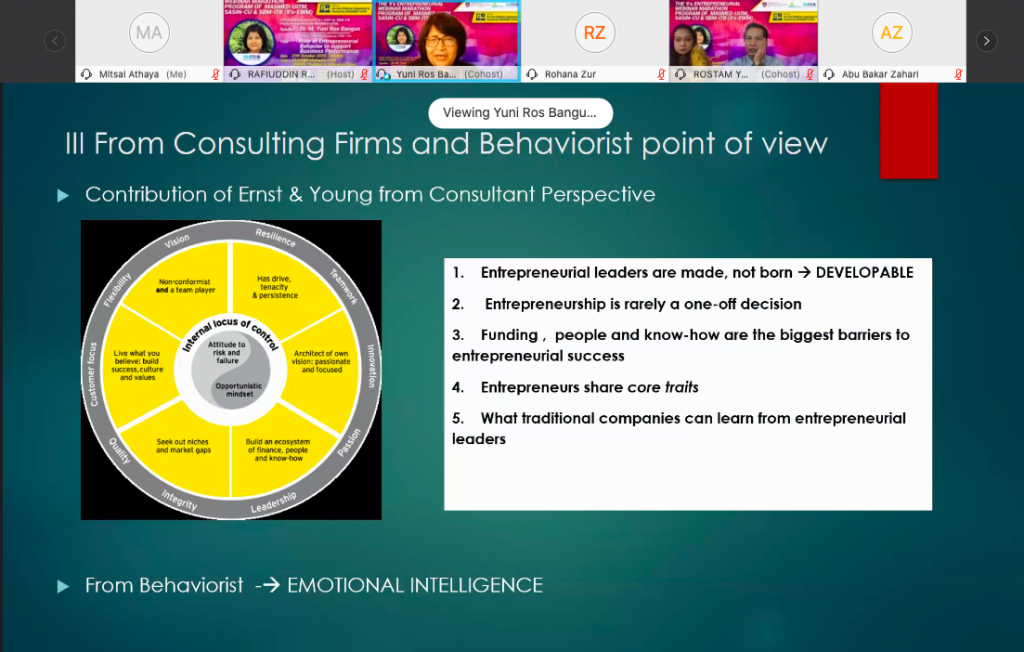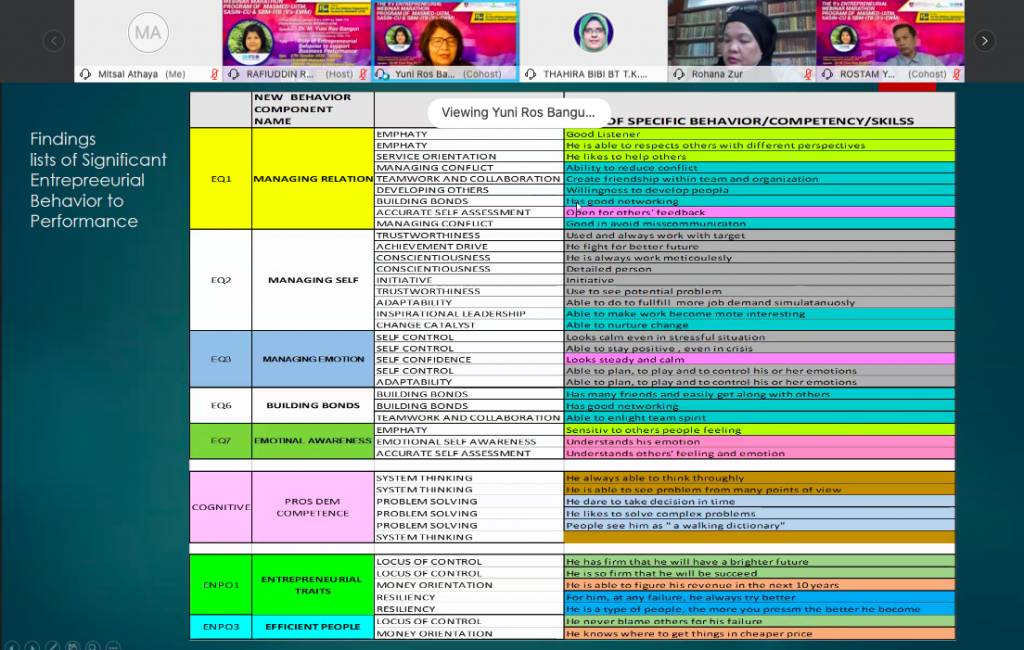Written by Student Reporter (Mitsal Athaya, Management 2022)
-
Inside the mind of an entrepreneur
Identifying opportunities and putting valuable ideas into practice is the core of entrepreneurial behavior. A person or group may carry out the series of tasks needed by this behavior, which usually require creativity, drive, and a willingness to take risks. M. Yuni Ros Bangun, an Associate Professor at SBM ITB, defined entrepreneurial behavior as a specific list of behaviors that might support an individual’s performance in a work environment, which significantly drives the performance of the entirety of the organization.
“Some people may be born entrepreneurs. But with the right education and employment policies, we can help create many more,” Yuni quoted. She mainly highlighted the research conducted by Ernst & Young titled ‘Nature or nurture: Decoding the entrepreneur,’ which questioned the stereotype that, without completing a formal education and without any corporate life experience, all entrepreneurs could start their businesses. While many of the entrepreneurs surveyed started at a young age, 45 identified themselves as “transitioned” entrepreneurs who had worked before setting out on their own in a corporate world. This result further emphasized the statement Yuni made earlier.
Entrepreneurs share core traits, which are:
- Attitude to risk and failure, and
- Opportunistic mindset.
Entrepreneurs share core traits, which are:
- Attitude to risk and failure, and
- Opportunistic mindset.
Additionally, among the personality theories of entrepreneurship, significant attention has been given to the locus of control. Locus of control refers to an individual’s perception of the causes of their living conditions. Most individuals are situated between the two extremes of complete external control and total internal control orientations. Entrepreneurs with an internal locus of control believe success is determined by his or her own efforts and abilities, which is why this idea is associated with intentions to become an entrepreneur and entrepreneurial entry, hence, making an internal locus of control an important factor to determine the success of an entrepreneur.

Later, Yuni explained the SBM Behavioral Assessment that was conducted to assess the significant entrepreneurial behaviors to performance. The results showed various behavior, competency, and skills which have been narrowed down to:
- Managing relationships;
- Managing self;
- Managing emotion;
- Building bonds;
- Emotional awareness;
- Pros dem competence;
- Entrepreneurial traits, and
- Efficiency

To conclude, Yuni emphasized the claim she had made earlier in the presentation that entrepreneurs are developable as the necessary traits can be taught in schools; not through courses about entrepreneurship nor leadership, but through awareness towards entrepreneurial leadership qualities and the measurements that all faculty members should maintain.






